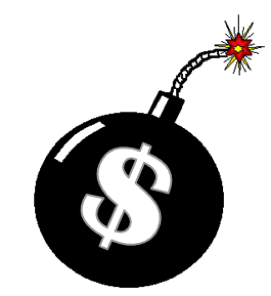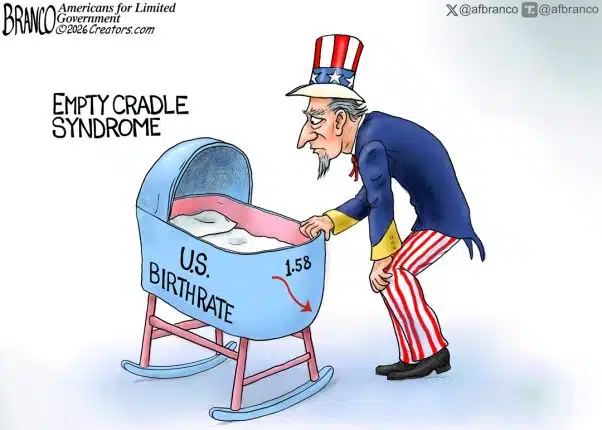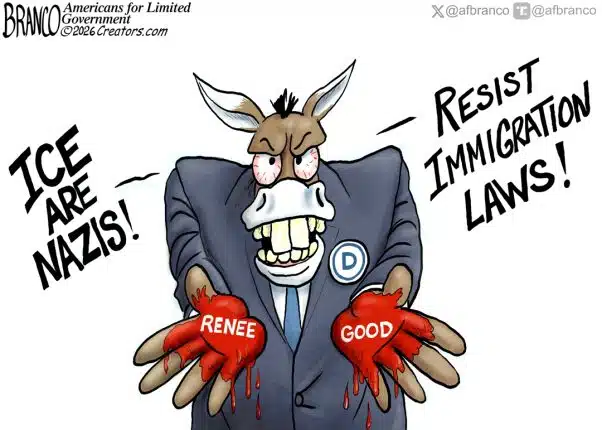One of mainstays in the postwar economy, and in particular, the post-gold standard economy after 1971 has been the dollar’s unchallenged status as the world’s reserve currency.
It has been called the exorbitant privilege.
At the time, as the story goes, to help resolve to the 1973 oil shock, Richard Nixon convinced Saudi Arabia to only accept dollars for payment of oil in return for protecting their oil fields and a guaranteed return on investments in U.S. treasuries. The petrodollar was born.
This was the move that solidified the reserve currency status, since surplus dollars were needed on hand by nations in order to purchase the most important commodity in the global economy.
For the U.S., such a system was generally seen as a boon. Having fully come off the gold standard, in theory it gave the dollar staying power as a dominant currency that retained value. And with such a high demand for dollars and therefore dollar-denominated assets, particularly U.S. treasuries, the nation could borrow more cheaply overseas to fund its deficits.
Since the oil shock, this arrangement has generally meant lower interest rates, not just for treasuries, but all types of dollar debt, corporate bonds, mortgages, you name it.
But all that easy money came at a cost, as we learned in the financial crisis. It incentivized the buildup and concentration of debt, particularly in the housing sector, which led to unbelievable valuations and then soon, a catastrophic crash. We’re still dealing with the aftermath of slow growth and lower labor participation.
Since then, speculation has surrounded how long the U.S. in the post-financial crisis world would be able to maintain the dollar’s status as the reserve currency.
The challenge has already come from the East, with China offering yuan-centric trade deals in the Eurozone, in Southeast Asia and Australia, and in Russia. China has repeatedly stated its desire to supplant the dollar as the reserve currency.
The writing is on the wall. It’s not a question of if the dollar will eventually lose its special status, it’s a question of when. And how.
Enter Jared Bernstein, former chief economist for Vice President Joe Biden, who offered a call to end the dollar’s reserve currency status unilaterally in the pages of the New York Times.
Here, Bernstein notes that the downsides of the reserve status — higher account and trade deficits, more debt, asset bubbles, and weakened manufacturing — appear over time to be outweighing the benefits such as cheaper lending.
That is all true. But Bernstein may be downplaying the impact of a unilateral dollar exit, particular the threat to interest rates. “[T]here’s no clear empirical, negative relationship between interest rates and trade deficits,” he wrote, pointing to research suggesting that trade surplus nations actually enjoy lower relative interest rates.
Yet, if the dollar as the reserve currency leads to lower interest rates, how does coming off of it — in the process killing demand for new U.S. debt — not lead to much higher interest rates?
This is no small matter as Bernstein suggests. He writes, “Dethroning ‘king dollar’ would be easier than people think.” Really?
That’s rash thinking. If done in an unmanaged setting — where the only change was dumping reserve currency status by, say, setting limits on how much currency foreigners can hold — the impact might be to crash the dollar-dominated bond market.
That is not to mention that the current entitlement state depends heavily on the arrangement of perpetually cheaper borrowing. A substantial interest rate shock might bankrupt the U.S. Treasury with more than $17 trillion of debt and trillions more of unfunded liabilities.
If a non-reserve dollar were to be undertaken, all of the budget’s funding levels, particularly for entitlements, would have to be recalibrated, because the cost of living would be radically altered. Debt levels and home values and the pricing of everything would have to be done again to take stock of the new situation.
You’d wind up with essentially a new dollar. The government might have to reissue the entire currency just to create an orderly process of revaluation.
In the process, considering the debt loads that were taken on during the reserve period, it might be incredibly difficult to pull off a dollar exit without writing off significant amounts of debt — perhaps through Fed asset purchases and then outright default on those obligations — and soaking up the excess currency.
Finally, right now the dollar has taken the place of gold as the international means of settling transactions. Getting rid of the dollar means that a new standard would have to replace that role.
But the global economic problems we see today are less the result of the dollar being the reserve currency than a fiat currency being the reserve currency.
Replacing it with another fiat currency, such as the yuan, will be worse than even what we see right now. That is why many advocates point to the need to go back to something hard, such as gold standard advocate Lewis Lehrman.
The dollar’s time as the reserve currency may be coming to close anyway. It may be time for the exorbitant privilege to come to an end, but if so it must be with the realization that perhaps nobody should have such power to move markets with funny money.
This discussion should be at the forefront of the next presidential election. It is time for a serious discussion about money. The outcome of that debate, and how the dollar is replaced, is certainly more important than how states and the federal government handle birth control, pot legalization or gay marriage.
This is no time for trivial discussions on tired wedge issues. If a new dollar is needed, it must be done wisely, and with a plan in place to ensure convertibility does not leave America — and the entire world — in financial ruin. The dangers are real and should not be understated.
Robert Romano is the senior editor of Americans for Limited Government.







